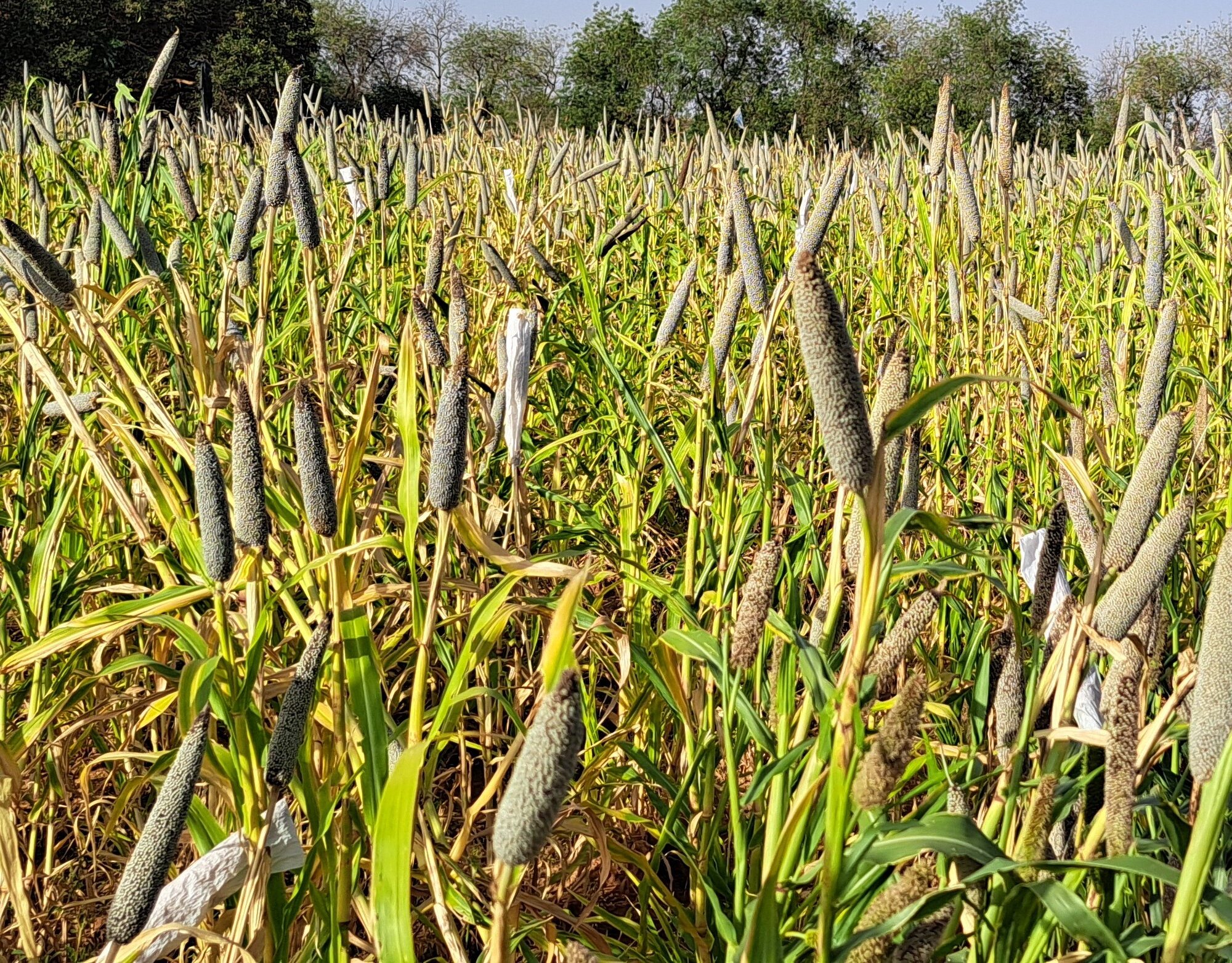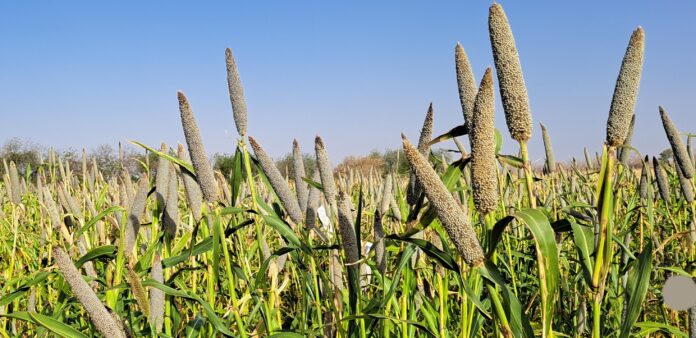In a significant stride towards enhancing food and nutrition security in Niger, the International Crops Research Institute for the Semi-Arid Tropics (ICRISAT), in collaboration with the National Institute of Agricultural Research of Niger (INRAN), has developed and introduced ‘Chakti’, a new climate-smart pearl millet variety.
This early-maturing and nutrient-rich millet is poised to revolutionize agriculture in Niger, a country grappling with the adverse effects of climate change on its staple crops.
Niger, characterized by its semi-arid climate, has witnessed increasing variability in rainfall patterns, leading to frequent droughts and shortened growing seasons. Traditional millet varieties, which require 100 to 120 days to mature, often fail to reach harvest due to these climatic constraints.
Chakti addresses this challenge head-on by maturing in just 60 days, effectively halving the growth period and allowing farmers to adapt to the erratic weather conditions.
“Chakti millet is a biofortified variety. It contains 60 mg/kg of iron and 45 mg/kg of zinc, which are higher levels than conventional millet varieties grown by farmers,” noted Adamou Hamadou, Senior Research Technician at ICRISAT. “The nutritional qualities of Chakti millet make it a particularly beneficial food for vulnerable groups such as children under 5 years old, adolescents, and pregnant women.”
Nutritional Advantages for Vulnerable Populations
Beyond its adaptability to changing climatic conditions, Chakti offers significant nutritional benefits. It boasts higher concentrations of essential micronutrients, containing 60 mg/kg of iron and 45 mg/kg of zinc. In comparison, the widely cultivated HKP variety contains only 45 mg/kg of iron and 35 mg/kg of zinc. These enhanced levels are crucial in combating malnutrition, particularly among children under five, adolescents, and pregnant women in rural communities.
Reports from various regions in Niger indicate that incorporating Chakti into diets has led to noticeable health improvements among women and children, underscoring its potential as a tool for nutritional intervention.
Rapid Adoption and Farmer-Centric Dissemination
Since its commercialization in 2018, Chakti has seen a swift uptake among Nigerien farmers. By 2024, it had become the second most cultivated millet variety in the country, trailing only the HKP variety. This rapid adoption is attributed to ICRISAT’s farmer-centric approach, which emphasizes field demonstrations, seed fairs, and awareness campaigns. In 2024 alone, 515 tonnes of certified Chakti seeds were distributed to farmers across Niger.
Hamadou elaborated on the dissemination strategy: “Our approach is based on demonstrations in farmers’ fields and raising awareness rather than imposition. We distribute small quantities of seeds to allow farmers to test this variety in their fields. We also participate in seed fairs and conduct programs like FESTIMIL (International Millet Festival organized in Niger), involving the government, to raise awareness.”

Addressing Adoption Challenges
Despite its advantages, Chakti’s adoption has faced some hurdles. Farmers have expressed concerns over its shorter ear length, which ranges between 35 and 40 cm, differing from traditional varieties and affecting customary storage practices. Additionally, the darker grain color of Chakti has been unfamiliar to some farmers accustomed to lighter shades.
To overcome these challenges, ICRISAT continues to engage with farming communities, providing education on Chakti’s benefits and facilitating its integration into existing agricultural practices.
A Model for Climate-Resilient Agriculture
Chakti’s development and successful deployment exemplify how targeted agricultural research can yield practical solutions to pressing challenges. By aligning crop development with the specific needs of farmers and the realities of climate change, ICRISAT and INRAN have provided a blueprint for similar initiatives in other regions facing comparable issues.
As climate change continues to threaten traditional farming systems, innovations like Chakti offer hope for building resilient agricultural practices that ensure food and nutrition security for vulnerable populations.








